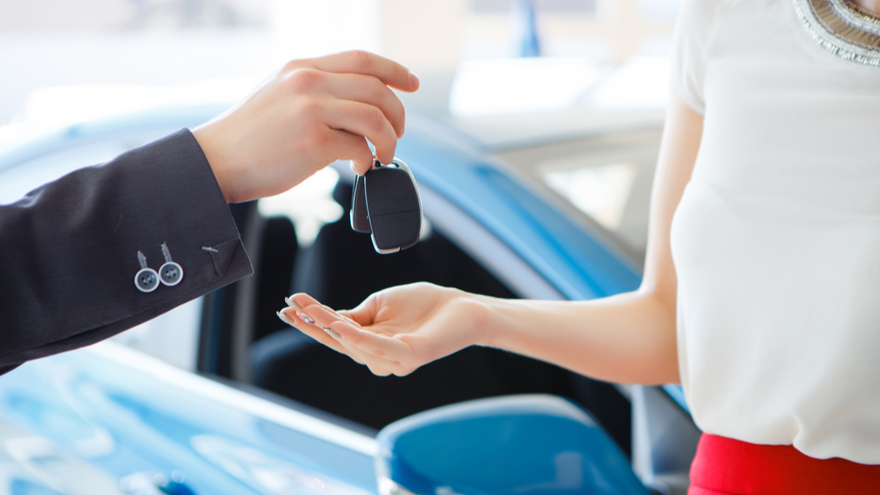2 ways to improve car-buying experience

By subscribing, you agree to receive communications from Auto Remarketing and our partners in accordance with our Privacy Policy. We may share your information with select partners and sponsors who may contact you about their products and services. You may unsubscribe at any time.
CARY, N.C. –
Despite happiness about getting a new car, consumers' feelings about the actual buying experience sometimes don't quite match such positive sentiment.
Negative impressions that stem from past experiences at dealerships can compete with the joy that car buyers often associate with the act of obtaining a new ride, according to survey data released by Shift Technologies on Thursday.
This was one finding from the wide-ranging survey, which touched on a variety of topics around dealership experience, transaction times and new auto technology.
The survey's findings illustrate just how consumers currently feel about any of the dealerships they've done business with and reveals the attitudes consumers hold when it comes to several topics relevant to dealers' future business.
Consumers were asked about the car-buying process with via questions focused on emotion, desire and the future.
The survey found that 68 percent of consumers feel happiness when purchasing a car, as opposed to anxious (16 percent) or uncomfortable (7 percent), according to Shift chief executive officer George Arison who spoke to Auto Remarketing by phone about the results.
Subscribe to Auto Remarketing to stay informed and stay ahead.
By subscribing, you agree to receive communications from Auto Remarketing and our partners in accordance with our Privacy Policy. We may share your information with select partners and sponsors who may contact you about their products and services. You may unsubscribe at any time.
The feeling of happiness seems to commonly be connected to the vision consumers have in their head of car-buying, Arison said. The idea of driving a newly purchased car excites them, but findings show that the day of purchase at a dealership can often turn the smiles worn by the happiest of customers upside down.
In fact, though a majority of consumers might look forward to a dealership visit, some people would rather be at the dentist or even filing their taxes, according to the survey.
At 23 percent, the survey found that people rate car-buying as worse than going to the dentist (19 percent) or doing taxes (19 percent).
Breaking it down by gender, when it comes to how consumers feel about their dealership visit experiences, women said that they don't leave as happy as their male counterparts do.
As a matter of fact, an overwhelmingly amount of women acknowledge walking away feeling spoken down during the car-buying or -repair process, according to the Shift survey.
While buying a vehicle or having one repaired, a sizable 40 percent of women were found to have been felt spoken down to, compared to just 28 percent of men.
Honesty, trimming buying time.
So what can be done to improve the process? For one, honesty.
When a customer has come into the dealership, this can be a key driver when influencing them to make a deal.
Survey data shows that the top thing dealers can do to make someone more likely to buy a car is to be honest (58 percent). That's more than discounted rates (48 percent) or extended warranties (45 percent), Shift found.
Another area where progress can be made? A more efficient transaction.
One of the survey's other top notable findings is that 38 percent of people have spent four or more hours buying a car at a dealership.
“The purchase process hasn’t changed much at all, it’s the same as it has been for a long, long time,” Arison said. “Where customers need most innovation is in the purchase process because people get so mistreated.”
He explained that offering a more evolved transaction process can be more valuable to consumers than the technology added to vehicles in recent years.
More than half (58 percent) say vehicle technology is helpful. Still, a small percentage (12 percent) say they don't necessarily need it.
Moreover, 58 percent aren't certain how all the tech amenities work.
Arison went on to explain that today customers can also easily do research online, but when it comes to the transactions stage of the car-buying process, long transaction times can be disappointing.
“It’s incredible to me that four in 10 people spent more than four hours checking out from a dealership when they have a car — meaning they’ve decided on what kind they want to buy, and it takes them four hours to check out,” Arison added. “That’s nuts.”
Ridesharing vs. ownership
Additionally, another significant finding related to tech is that most people don't desire ridesharing over car ownership.
87 percent of survey respondents told Shift that they have no intention of getting rid of their cars for ridesharing.
Arison said, “A lot of people have the misperception that ‘Hey…rideshare is coming, and the consumer is going to give up their car’ but they really don’t plan on doing that.”


